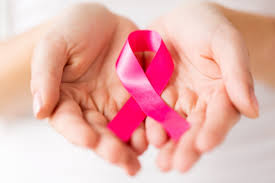Cancer is such a word that can scare life out of people. The moment a person is diagnosed with it a plethora of emotions engulf him. The sooner the patient or the caregiver comes out of the initial shock the better. The disease can be effectively fought , what is required is managing through cancer treatment with hope and optimism.
So probably, it is that day of your life when the doctor has informed that you or someone very close to you has been diagnosed with cancer. Shock, disbelief, doubt, astonishment, skeptic are some of the words that can be used for describing the initial reaction.
The sooner the patient or the caregiver comes out of the initial shock the better. The disease can be effectively fought , what is required is managing through cancer treatment with hope and optimism.
Consider the following in order to cope up with cancer treatment in a better and a proactive manner.
1) Understand your Cancer
First and foremost it is important to understand the specific type of cancer that has been diagnosed for it is a word that is used for more than 100 diseases. This has to be followed by understanding the process of diagnosis and the treatment. Understanding the nature of the disease, the diagnosis and the treatment will help you to play an active role. Do not hesitate to ask questions from the medical team, access authentic resources to gather information as all this will help in making informed decisions.
2) Medical Care
Ask the doctor what the various medical terms mean. In case you as a patient are a person who is not interested in too much information discuss that too with your doctor and caregivers. Let them know the exact nature of information you would like.
Once the disease is confirmed the next step is to find the right doctors. A patient may require one or all three – a specialist surgeon, an oncologist and a radiotherapist. Ask the GP, friends or patients who have gone through the treatment. It is important that one be comfortable talking to the doctor about the disease, the treatment, the side effects and clinical trials. Though easier said than done, the doctors should be able to put all your apprehensions to rest.
A very important question that arises at this stage is – Second Opinion. Yes, there is no ham in taking a second opinion and even doctors encourage their patients to go for the same. But remember do not get involved in doctor shopping and hopping as this would simply make you restless and emotionally exhausted.
3) Stay Organized
It is important to stay organized and calm during the entire course of treatment. In case a surgery, radiotherapy is required, discuss the schedule for the tests to be undertaken before it. Discuss the healing time as that would determine the time of starting the chemotherapy. Make appointments, receive the test results, and date wise file your reports and prescriptions.
It is equally important to look at finances and insurance coverage for the cost of the treatment is likely to be high.
The treatment is likely to have an impact the normal work schedule. Discuss the same with the doctor and find out how and to what extent the treatment would hinder the normal work routine.
4) Support Groups
Remember, that you are not alone both as a patient and a caregiver. There are friends and family who can help deal with various issues arising during the treatment. There are number of organizations, counselors and help groups waiting to help patients cope with the various (financial, social, emotional) impacts of the disease and treatment.
While talking about the disease, treatment and side effects with your doctor and care giver will definitely help you feel better, counselors are professionals who are trained in dealing with the emotional impact of the disease and the treatment. They provide encouragement and a positive attitude that helps you stay optimistic about the treatment and even follow a normal routine.
There may be times when a patient may not feel strong enough to carry out your normal activities like going to work and parenting. Do not panic. This is the time to seek help. Do not hesitate to take advantage of conveniences, evaluate and reevaluate priorities.
The word cancer may sound serious for it can be serious, but there are reasons to be hopeful. In the last few decades there has been so much research with respect to diagnosis, treatment and supportive care that losing hope is just not worth it.
Get up and take charge of your life!

An affirmation to say everyday: The healing power of God is working in me right now. Every day I get better and better in every way.”
-Joyce Meyer








